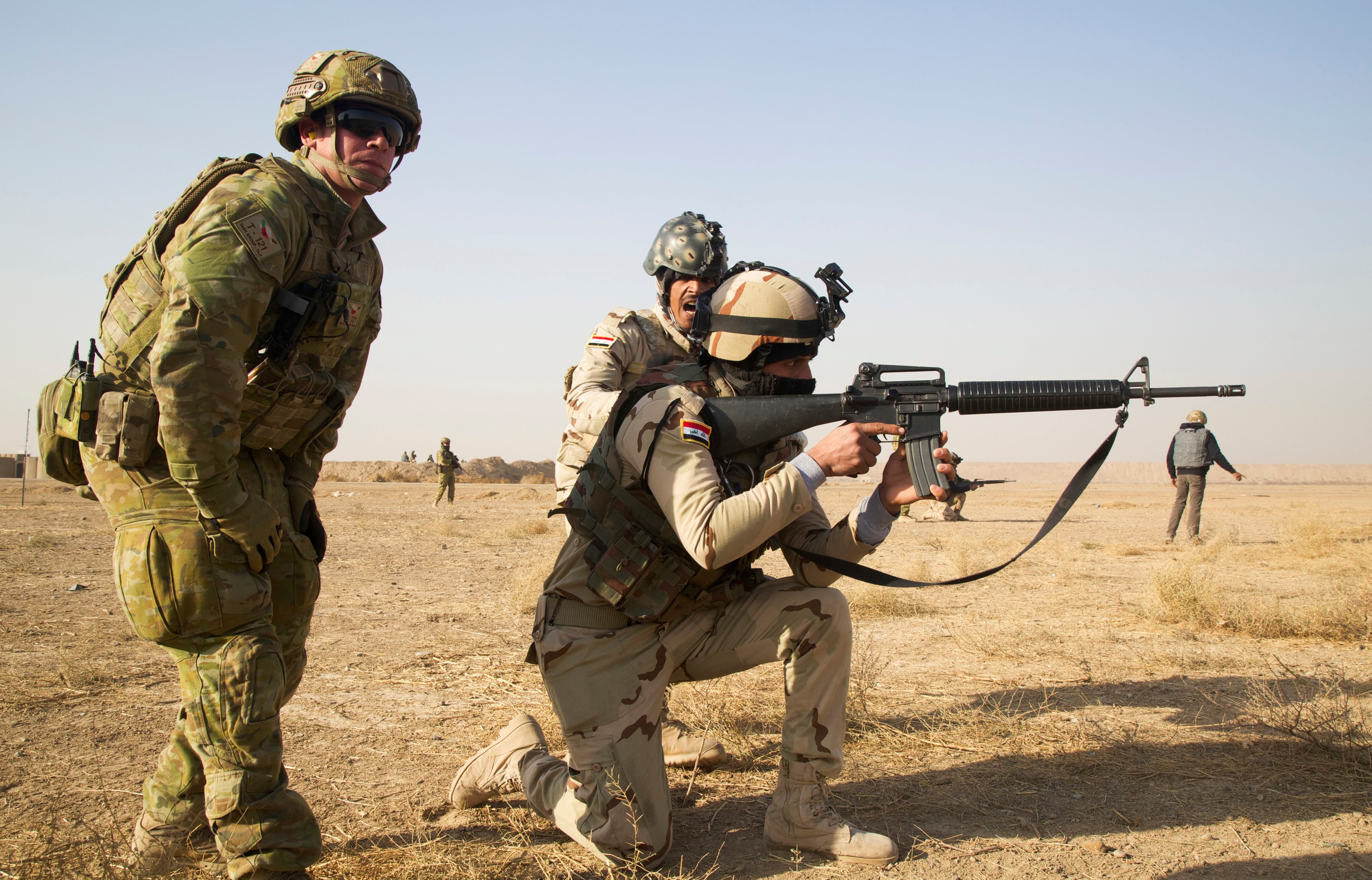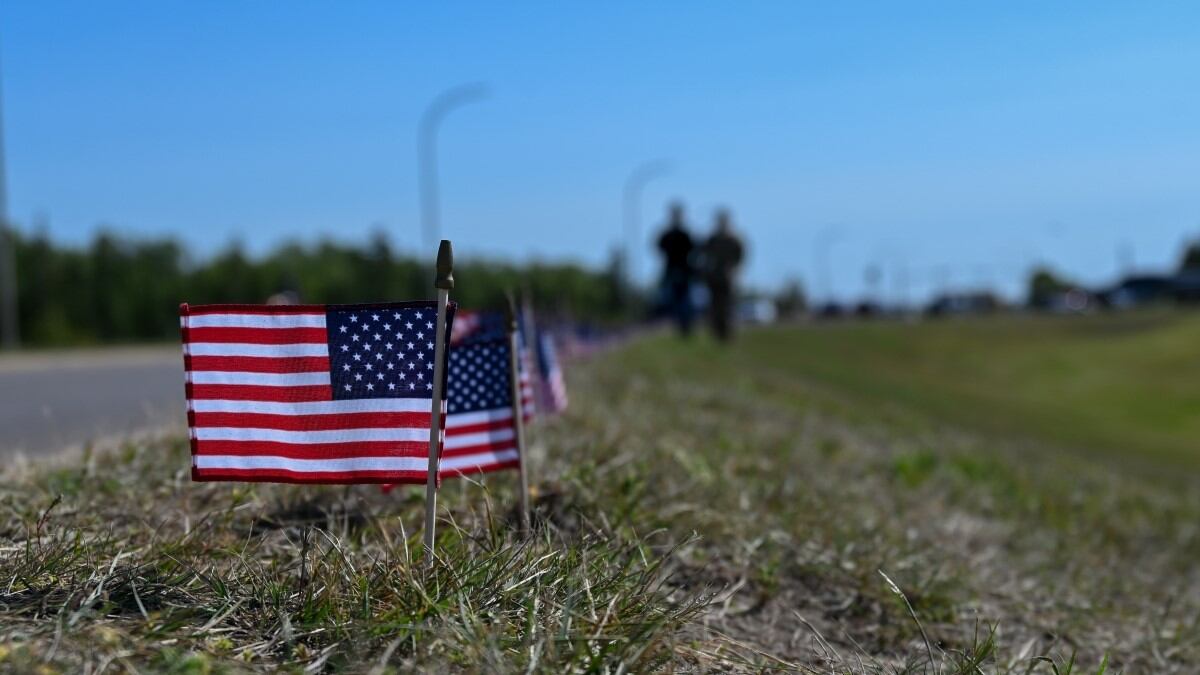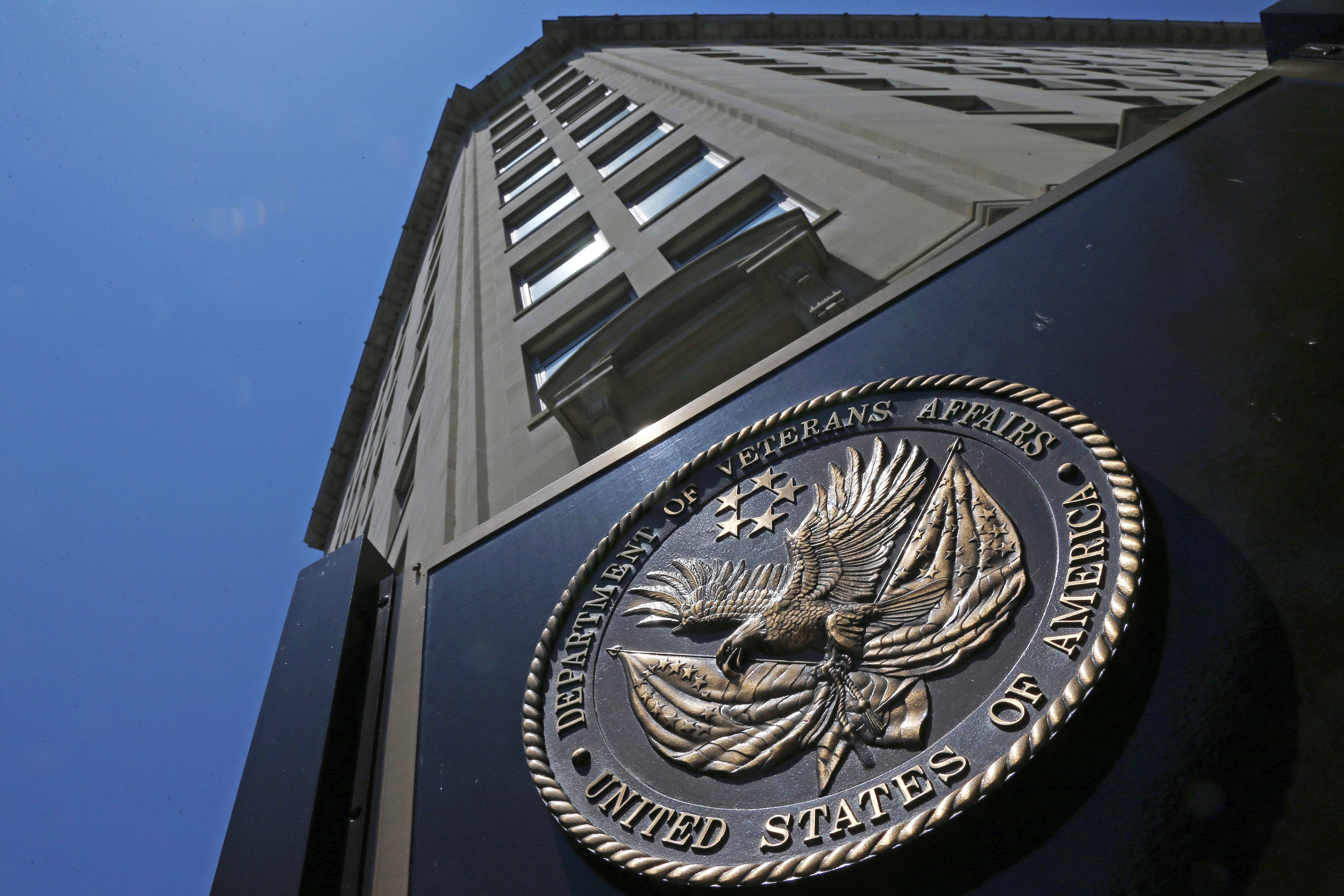UNDISCLOSED LOCATION, Southwest Asia - As Iraqi forces prepare to push into western Mosul, U.S. and coalition troops are stepping up their efforts to better share information and intelligence for the fight.
The new Battlefield Information Collection and Exploitation System, or BICES, has been in use by Combined Joint Task Force-Operation Inherent Resolve leaders since December, said Air Force Col. Sean Welsh, deputy director for operations at Operation Inherent Resolve headquarters.
The move has helped streamline day-to-day international information sharing, replacing the old U.S.-only SIPRnet system, he said.
SIPRnet only allowed limited access to military allies from the Five Eyes nations – the United Kingdom, Canada, New Zealand and Australia, with which America has a special intelligence-sharing agreement. But other allies, such as Iraqis, were shut out entirely from SIPRNet, and U.S. officials sometimes were forced to show partners hard copies of crucial documents in person because they were prohibited from sending them electronically.
BICES, however, now easily allows officials to email their coalition partners at different classification levels, using different filters and firewalls. This means secret messages can be targeted to just Five Eyes partners, the entire coalition, or just to officials from nations taking part in "kinetic operations." It can also allow officials to share maps, video, radar data, briefings, and other ISR information with one another.
The coalition is also providing intelligence, surveillance and reconnaissance support to help the Iraqis in their fight – and an important purpose of ISR is trying to deconflict a complicated combat zone to avoid friendly fire and civilian casualties.
"Ultimately, the goal is to find enemy forces, ISIL forces, and distinguish between enemy forces and non-combatants," Air Force Lt. Col. Luis Adames, deputy chief of the ISR division at OIR headquarters, said Jan. 12. "After that data comes back, there is a whole team of analysts that are not just Air Force, but coalition members as well. And our partner forces look at this data and … make sure there's a clear distinction between combatants and non-combatants. It's a challenging thing to do, but it's something we put a lot of effort into doing, and to make sure we're doing the right thing."
For many of the troops in Iraq today, this is the second time they've been sent to fight a war in Iraq in the last 15 years.
But leading military officers helping direct that war - including many who served in Operation Iraqi Freedom - see a major difference between that conflict and the current war against ISIS. Today, they say, the Iraqi military is truly taking the lead, with the United States and other coalition allies advising and assisting in a primarily support role.
"We understand that this war is actually the Iraqis' war to fight," Air Force Col. Charles Bolton, commander of the 386th Air Expeditionary Wing, said in a recent interview at the 386th's base in the Middle East. "They are the face and the front of this war, unlike [when] Iraqi freedom was going on."
"It’s a little different in this conflict than a lot of us have experience with, because a lot of the fighting is being done by our partner forces, the Iraqis," Welsh said. "It’s their plan, and they come up with their plans, and then we decide and try to support them in their plans to the best of our ability."
Welsh said that coalition forces have troops embedded on the ground with Iraqis, working face-to-face as they discuss how best to assist Iraqi troops. That can include providing anything from close air support, to artillery support, to rockets, to non-lethal information operations such as dropping counter-propaganda leaflets to rebut ISIS' message.
"This is a combined and joint operation from start to finish," Welsh said. "Everybody's weighing in with what they're bringing to the fight. All the different [U.S. military] services and coalition nations, as well, are pitching in to defeat the enemy."

An Australian trainer from Task Group Taji ensures Iraqi soldiers are safe as they conduct live fire maneuver training at Camp Taji, Iraq, Dec. 14, 2016. This training is critical to enabling Iraqi security forces to counter ISIS and regain territory from the terrorist group.
Photo Credit: Spc. Craig Jensen/Army
As Military Times visited the region, the Iraqi army's battle for Mosul, which began last October, was regaining momentum after a pause to regroup. It has been a tough fight so far, officials said.
"The fight for Mosul has been a slow one, because Daesh [a pejorative nickname for ISIS] is an intense enemy," Bolton said. "Fighting any sort of urban warfare, once you get inside the congested area of a city and you have to clear buildings and blocks, that is a tough area to operate in. It's going as well as it can be any time that you have to fight a war inside a city atmosphere."
Welsh said that the Iraqis are showing progress and having more success than at the beginning of operations – particularly in the way that they've learned how to flank ISIS and "present the enemy with multiple dilemmas." Welsh said coalition forces helped teach that tactic.
"They're doing a better job of synchronizing their efforts across the city, instead of really just focusing in on one particular area," Welsh said. "That allows the enemy to almost sense where that effort is being located and then mass there to oppose. Versus, if you synchronize and have a multiple push from different directions, you make the enemy either spread themselves thin, or pick one spot where they're going to provide heavy resistance, and that allows the other areas then to make progress."
Welsh said the Iraqis are also learning how to analyze and find ways to counter ISIS tactics – particularly their use of vehicle-borne improvised explosive devices, or car bombs, which is one of their most heavily-used weapons in Mosul.
The battle for Mosul is "going very well, and is a very deliberate process," Welsh said. "The Iraqi forces are doing a great job in planning and adapting to, not just the enemy, but also the terrain. They've been learning, and learning from their own mistakes, and it's going well at this point – not to say that there won't be challenges ahead and rough spots ahead. I would say it's going better now than it did at the start."
Bolton said "it's anybody's guess" as to how long the Mosul fight will last, and that the U.S. is doing everything it can to help the Iraqis. But he also said he's been impressed with how the Iraqis have stood up and taken the lead.
Stephen Losey is the air warfare reporter for Defense News. He previously covered leadership and personnel issues at Air Force Times, and the Pentagon, special operations and air warfare at Military.com. He has traveled to the Middle East to cover U.S. Air Force operations.




